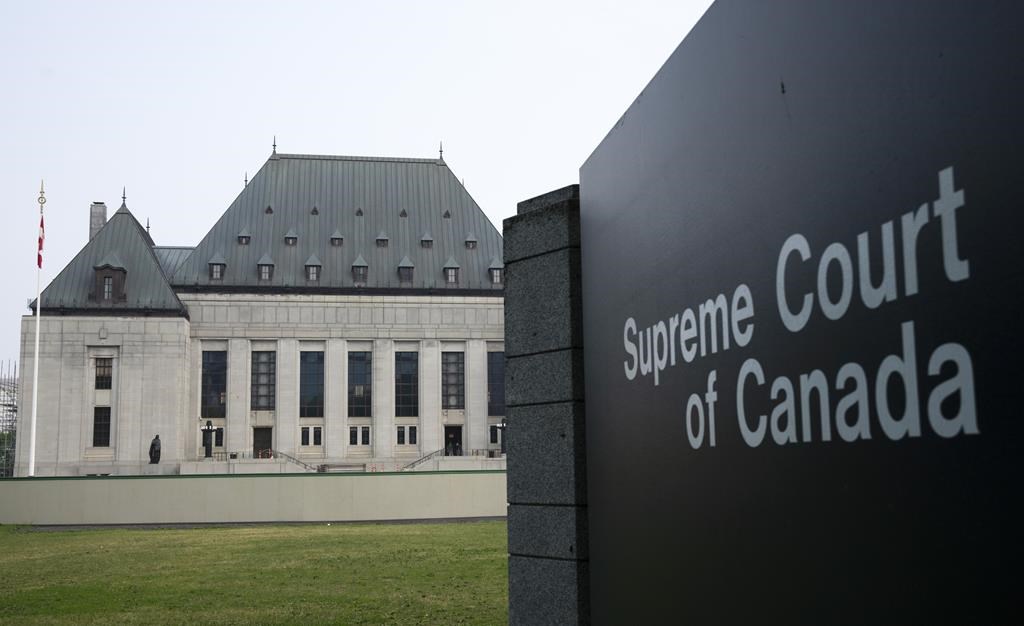Supreme Court will not hear Quebecers’ COVID-19 fines challenge

Posted September 26, 2024 2:03 pm.
People who received tickets for violating the health measures imposed by the François Legault government during the COVID-19 pandemic will not receive a refund.
The five people who were trying to obtain such a decision ended their legal proceedings before the Supreme Court on Thursday, which refused to hear their request to appeal the unanimous decision rendered by three judges of the Quebec Court of Appeal on Jan. 24.
As is its custom, the country’s highest court does not give a reason when it rejects an appeal, this rejection simply endorsing the decision that the appellants were seeking to overturn.
Failure at every stage
The five people, Lily Monier, Stéphane Blais, Richard Girgis, Denis Larrivée and Sonia Grewal, had in fact failed at each stage of their legal proceedings.
To obtain the cancellation and reimbursement of the fines related to the statements of offence, the applicants alleged that “COVID-19 does not represent a serious threat to the health of the population of Quebec, whether real or imminent, and that there is and was, consequently, no valid reason for the state of health emergency … to have been maintained in Quebec in connection with COVID-19 until June 1, 2022.”
They went further, stating the state of health emergency had only been declared “for political and opportunistic reasons.”
Unconstitutional measures?
Based on this assertion, they argued that the curfews, the bans on home meetings or gatherings, the suspension of sports, educational and cultural activities and the closure of establishments related to these activities, the imposition of the health passport and the wearing of masks represented all violations of their rights and were, therefore, unconstitutional.
Superior Court Justice Michel Pinsonnault had, however, ruled in June 2023 that “the lifting of the state of health emergency rendered moot the Judicial Review and the Conclusions seeking to have section 119 of the Public Health Act, the ministerial decrees and orders, and the health measures decreed therein declared null and inoperative.”
“In the event that the present dispute has become moot, the Court is not required to rule on the merits of these issues,” the magistrate ruled.
However, the judge had nonetheless emphasized that, “according to the National Institute of Public Health: during the first months of the pandemic, the SARS-CoV-2 virus infected more than 50,000 Quebecers, requiring the admission of more than 6,000 of them to hospital and resulting in the deaths of more than 5,000 people.”
Reckless and abusive request
As for the desire to obtain a refund of the fines, this highlighted, according to Justice Pinsonnault, “the reckless, even abusive, nature of the appeal by the plaintiffs who are clearly trying, by means of a favourable judgment rendered in the present proceedings, to overturn or invalidate a doubtless significant number of judgments already rendered in the context of the pandemic since March 2020”.
On appeal, Justices Martin Vauclair, Benoît Moore and Éric Hardy had acknowledged that “the effect of the judgment under appeal is to put an end to the litigation and deprive the plaintiffs of a substantive response to their question”. However, the court reaffirmed that the theoretical nature of the case “cannot be doubted. The applicants are requesting that decrees or ministerial orders that no longer apply be declared null or inoperative.”
The three judges noted that even if the applicants had suffered various inconveniences related to the health measures, “for all these cases … the appeal for judicial review as filed is of no relevance or utility since these possible appeals must be the subject of separate actions.” In other words, if the applicants believed they had suffered harm, it was up to them to make their representations individually.
They were of the same mind regarding the issue of reimbursement of all the fines resulting from the offences. The appeal court thus invited each offender to put forward their arguments: “even assuming that such a remedy is legally possible, on which the Court does not rule, (it) is impracticable and the litigants involved can always, before the correct forum, invoke a violation of their rights in the context of their trial.”



